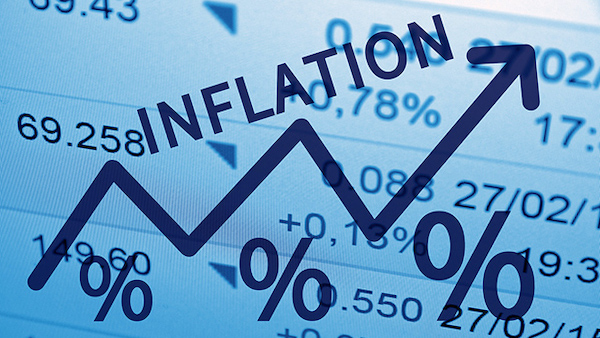Business
Nigeria’s inflation rate hits 12.82% in July, highest in 27 months

Nigeria’s inflation rate rose to its 27-month high and for the 11th consecutive month in July, the statistics office said on Monday as the coronavirus pandemic disrupted imports and weighed on logistics and the supply chain.
The Consumer Price Index, which measures inflation using the weighted average price of a basket of consumer essentials, climbed higher to 12.82% from 12.56% in June, the National Bureau of Statistics (NBS) said.
Nigeria’s inflation rate, worsened by border closure last year and the outbreak of the coronavirus, has been on a steep rise as prices of staples like rice, vegetable oil, frozen foods and processed foods remain high.
The composite food index, according to the new report, climbed by 15.48% in July, relative to 15.18% the month before. Food inflation has been in double digits for over three years.
‘This rise in the food index was caused by increases in prices of bread and cereals, potatoes, yam, and other tubers, meat, fruits, oils and fats, and fish,’ it said.
Core inflation, which excludes the costs of volatile agricultural produce, was 10.10% in July, 0.03% lower than the 10.13% posted in June.
“The highest increases were recorded in prices of Medical services, passenger transport by air, pharmaceutical products, hospital services, passenger transport by road, maintenance and repair of personal transport equipment, paramedical services and vehicle spare parts,” the report said.
Yields on treasury bills and bonds have now dropped below inflation, a key obstacle for the central bank’s push to attracts foreign inflows to shore up the naira and strengthen the economy.
The apex bank has weakened the local currency two times this year to soak up the shocks from a steep fall in crude prices, which have triggered a dramatic fall in growth. The action has equally heightened inflation with dearth of dollar supply disrupting imports.
A hike in petroleum prices and disruptions relates to the phased relaxation of the coronavirus lockdown have been linked to the inflation rise.
The NBS said the prices of passenger transport by air and road recorded the highest increase on the non-food index, together with charges for medical services and pharmaceutical products.
Bauchi, Kogi, Sokoto and Plateau States posted the highest levels for food inflation compared to July 2019 while Adamawa, Abia and Lagos recorded the lowest levels.
‘On month on month basis, however, July 2020 food inflation was highest in Zamfara, Kogi and Yobe, while Niger and Ogun, Lagos with Adamawa recording price deflation or negative inflation (general decrease in the general price level of food or a negative food inflation rate),’ the report said.
Government expects the economy to shrink by as much as 8.9% this year.
Join the conversation
Support Ripples Nigeria, hold up solutions journalism
Balanced, fearless journalism driven by data comes at huge financial costs.
As a media platform, we hold leadership accountable and will not trade the right to press freedom and free speech for a piece of cake.
If you like what we do, and are ready to uphold solutions journalism, kindly donate to the Ripples Nigeria cause.
Your support would help to ensure that citizens and institutions continue to have free access to credible and reliable information for societal development.
























